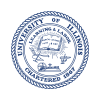No Limits Browser
A group of developers in Perth, Australia, calling themselves "The Four Horsemen" are working to
ready a new open-source browser before the end of the year.
The browser, which the group plans to release under the GNU General Public License, will be called No Limits.
The main distinguishing characteristic of No Limits will be its ability to support two rendering engines, i.e., the
code that displays a Web page. Users will be able to opt between the engine that displays a page the fastest or
the most compatibly.
"We plan to have NO limits in terms of compatibility," explained the primary keeper of the No Limits code,
Peter Revill, who also goes by the handle "Nick Nervlord." Revill added that "there will be two options for
users: fastest and most compatible, and they can be switched between at any time and the page refreshed."
The Four Horsemen have
developed a few other
programs, such as a PC
security program designed to
prevent unauthorized access
to users' systems while they
are away from their machines,
said Revill. The No Limits
coders had completed a
browser with multiple
rendering engines but then
went back to the coding
drawing-board once they
decided to add an HTML
parser that would decide
automatically which rendering
engine to select.
No Limits is written in Visual
Basic and currently supports
the Internet Explorer and
Mozilla Gecko rendering
engines. But The Four
Horsemen are "strongly
considering looking at a
browser in Linux that would
use the (KDE) Konqueror and
Mozilla engines, instead of the IE/Mozilla combination," Revill said. He added that such a switch was just an
idea at this point and had not been undertaken by the group.
Revill said he is planning on making a binary beta version available to interested parties soon. The Four
Horsemen are aiming to deliver the final No Limits browser before year-end, possibly in November. The
group will make the browser available for download for free.
Browsing for market share
Several vendors are experimenting with browsers that offer users alternatives to the dominant
two--Microsoft's IE and AOL Time Warner's Netscape.
AOL itself is working on technology code-named Komodo, which is expected to debut in its AOL 7.0 and
next-generation CompuServe clients later this year, that will allow for a browser other than Microsoft's IE to
become the foundation upon which AOL's clients will be based, going forward.
And Oslo, Norway-based Opera Software is continuing to pump out versions of the Opera browser that
support a variety of platforms. This week, the company debuted its Linux version and a version that supports
the QNX operating system running on IBM's NetVista Internet Appliance. Opera is also developing a version
of its browser for the Macintosh, which the company expects to make available sometime later this year.
Revill emphasized that he believes No Limits will be the fastest browser on the market, given its multiple
rendering-engine support. "Our only competition is slow rendering speed, and we think we can win," he
quipped.
But as Giga analyst Stacey Quandt noted, even the fastest, cheapest and best browser may not win.
"Sometimes, the best technologies don't win out. Microsoft's IIS (Internet Information Server) is faster than
Apache, but Apache has the greatest market share, for example.
"The real question is how well will No Limits tie into existing applications," Quandt continued. "They are going
to need some ISV (independent software vendor) partnerships, with entities like KDE and GNOME, and/or
investments to make this work."








































































